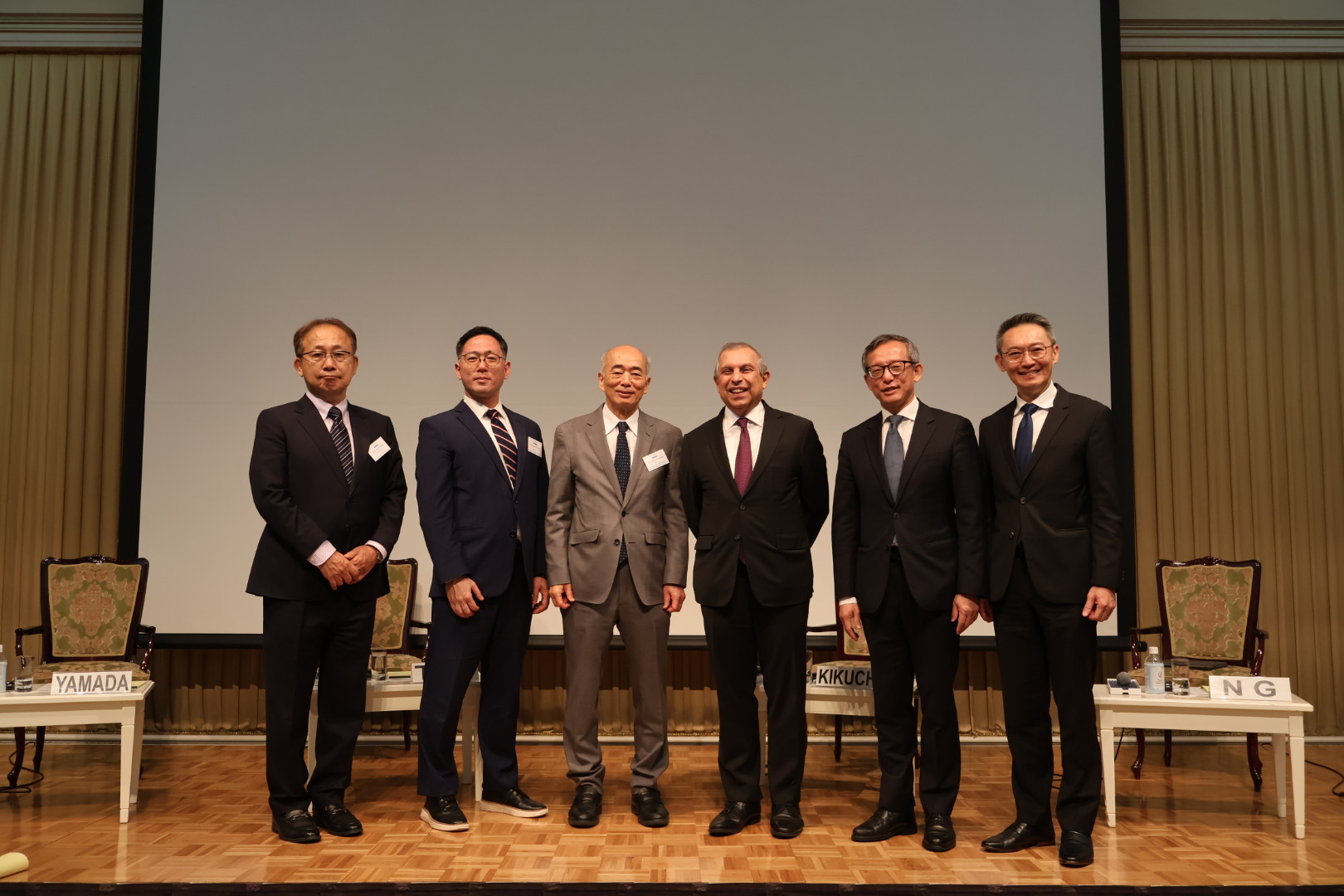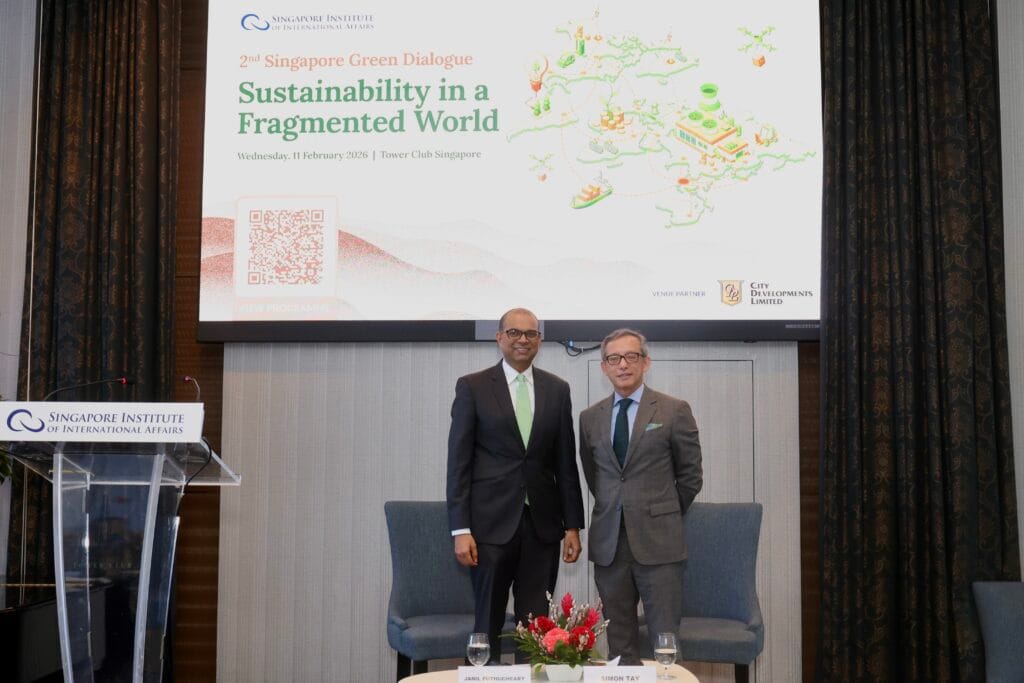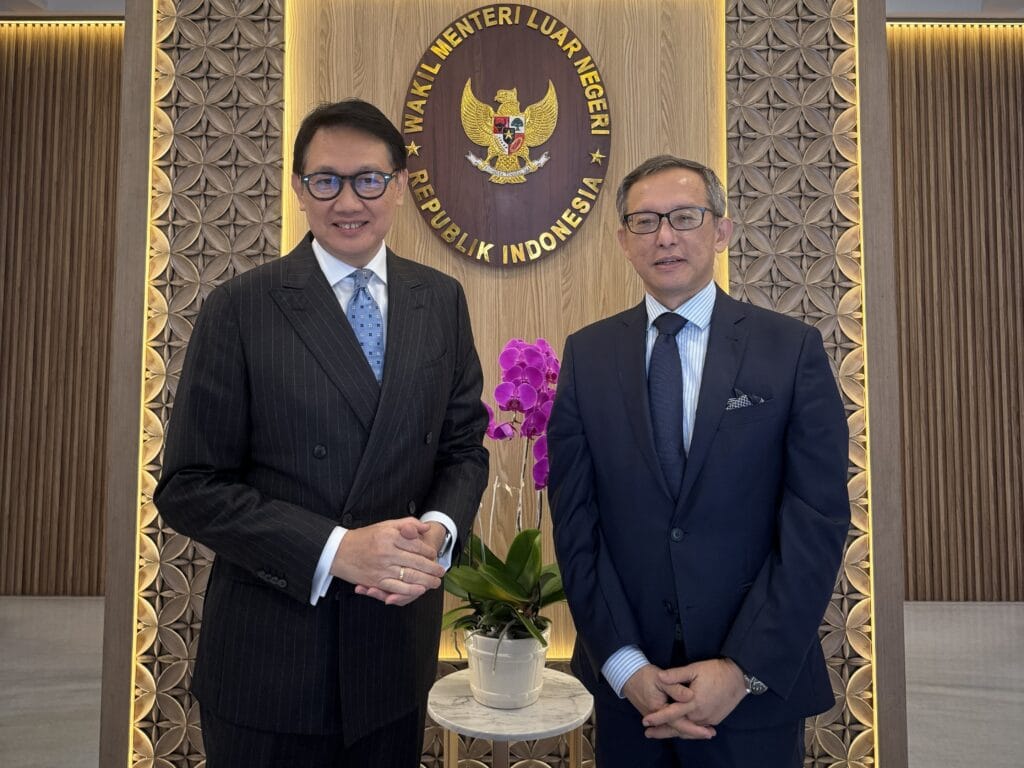Media Release
Immediate Release
Japan-Singapore Cooperation in a World Remade
18th Japan-Singapore Symposium
Delegates underscore pathways for enhanced cooperation between Japan and Singapore
Tokyo, 18 September 2025 – Amid geopolitical and economic changes, Japan and Singapore reaffirmed their enduring partnership and explored new avenues for bilateral and regional cooperation. They looked forward to the commemoration of the 60th anniversary of Japan-Singapore diplomatic relations in 2026.
2 At the 18th Japan-Singapore Symposium (JSS), a Track 1.5 dialogue held on 17-18 September 2025 in Tokyo, Japan, the two sides reflected on their close partnership. The symposium was co-chaired by Ambassador Kenichiro Sasae, President of the Japan Institute of International Affairs (JIIA); and Mr. Ashok Mirpuri, Head of International Policy & Governance at Temasek.
3 The JSS public forum opened with keynote speeches by Mr. KONO Taro, Member of the House of Representatives and Chairman of the Japan-Singapore Parliamentary Friendship League; Ms. IKUINA Akiko, Parliamentary Vice-Minister for Foreign Affairs of Japan; and Ms. SIM Ann, Senior Minister of State, Ministry of Foreign Affairs of Singapore (via a pre-recorded keynote).
4 Co-hosted by the JIIA and the Singapore Institute of International Affairs (SIIA), the JSS public forum welcomed more than 50 participants, including representatives from academia, the private sector, and the general public. Prior to the public session, a full-day closed-door meeting brought together senior academics, business leaders, and officials from both countries to engage in candid discussions on key issues.
5 In their opening remarks, the Co-Chairs welcomed the close Japan-Singapore relationship and spoke about the need to further strengthen in complex geopolitical landscape globally. They underlined the value of the symposium in current times, highlighting challenges to globalisation, trade, and the rules-based order, and the need for Japan and Singapore to work bilaterally and with ASEAN partners in reinforcing established networks and maintaining strategic balance.
6 In his keynote, Mr Kono reflected on the close historical and economic ties between Japan and Singapore, and the growing people-to-people exchanges. He stressed the importance of shared values such as democracy and the rule of law in addressing challenges posed by Russia and China, and underscored Singapore’s role in the Indo-Pacific. He also raised the prospect of deeper global security cooperation once the war in Ukraine concludes, and expressed hope that the symposium would open new opportunities as the two countries mark 60 years of diplomatic relations next year.
7 Ms Ikuina highlighted the growing fractures in the global security and trading systems, and the need to reassess how Japan and Singapore can contribute to regional peace. She noted that bilateral cooperation has strengthened across economic, defence, and social spheres, and stressed the importance of sustaining this momentum to address future challenges together.
8 Ms. Sim addressed Japan-Singapore cooperation in a shifting global order, reaffirming the importance of rules-based multilateralism and peaceful dispute resolution. She outlined three priorities: deepening the bilateral partnership, enhancing ASEAN-Japan collaboration, and building resilient networks. She also emphasised the potential for cooperation in emerging areas such as the digital economy, AI governance, and the green transition.
9 At this year’s public forum, moderated by Amb. Sasae, participants examined how Japan and Singapore can provide new ideas and stability amid global uncertainty. The following panellists underscored the need for Japan and Singapore to take on proactive leadership roles in the region.
- Takio YAMADA, Executive Fellow at JIIA, inaugural Ambassador to ASEAN, and former Ambassador to Vietnam
- Simon TAY, Chairman, Singapore Institute of International Affairs
- Tomoo KIKUCHI, Professor, Waseda University, Graduate School of Asia-Pacific Studies
- Adrian NG, Director-General (Asia, Middle East and Africa), Ministry of Trade and Industry
10 The forum also considered how both countries can strengthen cooperation in response to shifts in the global economic landscape. Discussions focused on expanding trade networks, including CPTPP and initiatives such as Singapore’s FIT-P, pursuing partnerships with regions like the EU, and maintaining a rules-based trading system. Participants also highlighted collaboration in emerging sectors, particularly the digital and green economy, smart cities, and supply chain resilience.
11 The Co-Chairs thanked participants for their active engagement and attentive contributions. Amb. Sasae remarked that the discussions had “opened up many possibilities”, while Mr. Ashok encouraged all to “go further and beyond traditional thinking”. They expressed confidence in the outcomes and looked forward to the next symposium.
Photos from the event can be found here.
Media Contacts
Chua Yi Jie
Senior Executive, Policy and Stakeholder Engagement
Singapore Institute of International Affairs
Email: yijie.chua@siiaonline.org | Mobile: (65) 93399219
About the Japan-Singapore Symposium (JSS)
The JSS was launched in 1994 by then Prime Minister of Japan Mr Murayama Tomiichi and then Prime Minister of Singapore Mr Goh Chok Tong. It began as a Track 1.5 forum between the Japanese and Singapore government and business leaders, and scholars, focusing on business and economic cooperation and bridge-building between the two countries. Held biennially since 1995, the JSS provides opportunities for representatives of different sectors from both countries to exchange views on issues of interest, and get to know one another better. On 26 April 2016, on the occasion of the 50th anniversary of the establishment of diplomatic ties between Japan and Singapore, both countries announced that the JSS would be upgraded to an annual event.
About the Singapore Institute of International Affairs (SIIA)
Insights • Networks • Access
Established in 1962, the Singapore Institute of International Affairs (SIIA) is a non-profit and independent think tank committed to producing policy analysis, fostering in-depth dialogues and bridging gaps between policymakers, private sector decision-makers and experts to shape public policy and social responses. Centred around ASEAN focused themes, the institute aims to deliver policy analysis in international affairs and on issues driving environmental sustainability. The SIlA has been consistently ranked as one of the leading think tanks in Southeast Asia and the Pacific, in the Global Go To Think Tank Index by the University of Pennsylvania. Since 2017, the SIlA was ranked the No. 1 independent think tank in Asia. It was also recognised as one of the top 50 think tanks globally, excluding the United States of America. For two consecutive years since 2019, it was recognised as the No. 1 think tank in South Asia, Southeast Asia, and the Pacific (excluding India). In 2020, it was also recognised as one of the think tanks with the best policy and institutional response to the COVID-19 pandemic.
About the Japan Institute of International Affairs (JIIA)
JIA, founded in 1959, is a private, nonpartisan policy think tank focused on foreign affairs and security issues. In addition to conducting a wide range of research projects, the Institute promotes dialogues and joint studies with other institutions and experts at home and abroad, examines Japan’s foreign policy, makes proposals to the government, and disseminates information on international relations to the public. JIIA, together with its large network of affiliated scholars, aims to serve as an indispensable resource on international affairs in a complex world. For more information about JIIA, visit www.jila.or.jp/en/.




